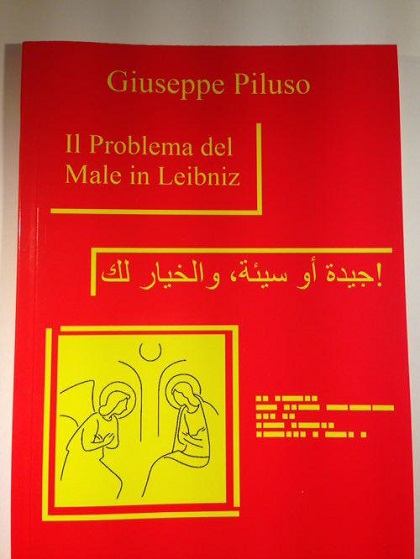They wrote about me… (2015 – 2017)
Book Title: “THE PROBLEM OF EVIL IN LEIBNIZ”
A culturally valid volume. I read with pleasure the new literary and editorial effort “The problem of evil in Leibniz” by Giuseppe Piluso, published by the well-known publishing house New Santelli from Cosenza.
Giuseppe Piluso is a new Calabrian writer who enters the Calabrian literary scene with this work marked by clear value and cultural depth.
I was intrigued by the reading of this book because of the peculiarity of the subject. Of course I knew the “thought” of Leibniz also appreciating the ever-relevant content, investigative on human nature, but it has pleasantly surprised me its focus on a distinctive feature, seemingly secondary, because there is always more to learn and discover in new points of view.
The problem of evil in Leibniz, the fine book of a witty intellectual, Giuseppe Piluso, as already pointed out by the title, deals with the ethical and religious theme of the individual.
Is there evil in this land? Yes of course. It can be seen daily. You can breathe it as if it were air. It’s a fact. The man is surrounded by Love but he is also clinging to the negativities that involve us and make us sad every day. Just turn on the TV and a most news are represented by negative events that happen in every place of our planet: wars, suffering, hunger, violence, abuse.
And that’s the great thing about this book: but if God created the universe, man, nature in “his image and likeness” and if God is infinite love, why is there this flood of negativity if everything has as the epicenter the figure of God? If God is Good and only Good how could He even conceive Evil? And how is it that God in His infinite goodness can bear the evils of life?
Giuseppe Piluso answers all these questions effectively, with balance, with participation, with a spirit free from conditioning.
I do not want to go into the matter of disquisition, because I want to stimulate your curiosity but Giuseppe Piluso, artist of pure thought, is able to capture the true essence of Leibniz’s thought and offer it to the reader gracefully on a crystal dish where everyone, without any distinction, can nourish their soul directed mentally and physically in the research, which must be obsessive, of Good. Everyone’s.
Carlo D’alessandro



